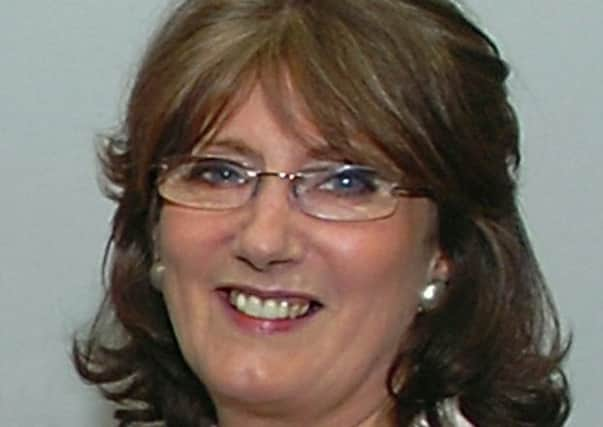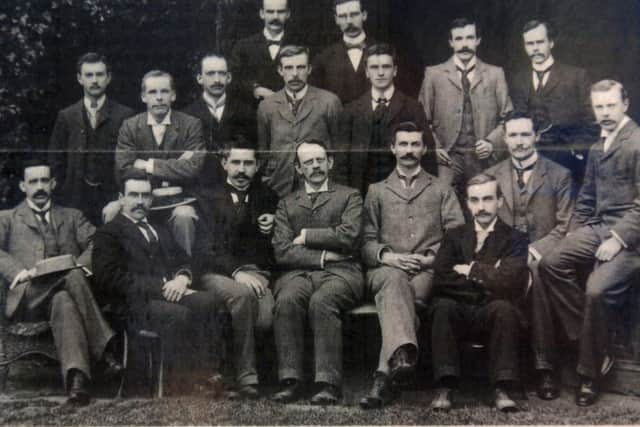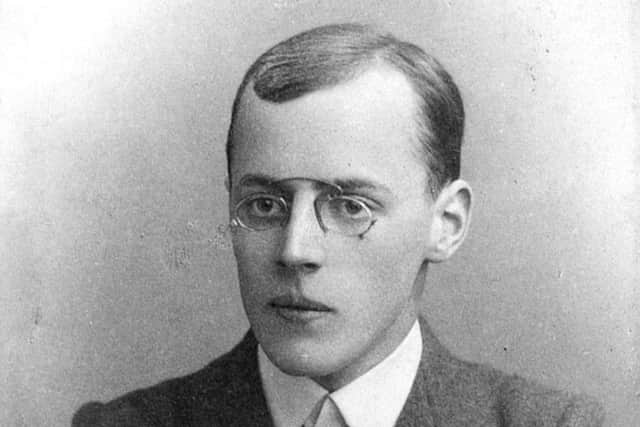The Nostalgia column with Margaret Watson


This week I am writing about another illustrious son of Dewsbury who brought great honour to the town when he was awarded the Nobel Prize for Physics in 1928.
Sir Owen Willans Richardson received the much coveted prize for his work on thermionic phenomena, and especially for his discovery of the law which bears his name – Richardson’s Law.
Advertisement
Hide AdAdvertisement
Hide AdThis law became an important aid in electron-tube research and technology, making possible the rapid development of radio, telephony, television and X-ray technology.


Born in 1879, Richardson was the only son of Joshua Henry and Charlotte Maria Richardson, of Blenheim Terrace, Dewsbury.
A pupil of St John’s CofE School, Dewsbury Moor, he began to show his scientific inclinations and qualities at an early age, by winning an Ackroyd Scholarship to Batley Grammar School at the age of 12.
Encouraged by his father, a woollen manufacturer in Dewsbury, the young Richardson did remarkably well in physics and chemistry, later gaining a first class honours degree in natural science at Cambridge University.
Advertisement
Hide AdAdvertisement
Hide AdBatley Grammar School was always justly proud that the most brilliant scholar this district had produced received his secondary education there.


Three years after starting at the school, he won the Governors’ Gold Medal as captain of the school, and in the same year he was first junior candidate in the empire in the Cambridge locals, and was subsequently awarded the Syndicate Prize.
These were followed by a series of remarkable successes, too many to mention in this column, but which his headmaster would announce to scholars after prayers. Richardson’s series of amazing distinctions.
It was said his voice would tremble with pride and emotion while announcing Richardson’s series of amazing distinctions, and he would invariably conclude by granting scholars a half-day and sometimes a whole day’s holiday.
Advertisement
Hide AdAdvertisement
Hide AdWhile a post-graduate student, Richardson was fortunate enough to study under the great J J Thompson who was his advisor at Trinity College Cambridge while he was studying for his PhD.


In 1902, two years after graduating from Cambridge, Richardson was elected a Fellow of Trinity, one of the highest academic distinctions.
In 1906, at the relatively young age of 27, he was offered the important position of Professor of Physics at the University of Princeton College in America.
He returned to England in 1913 as Wheatstone Professor of Physics at King’s College University of London, and the following year, when World War One broke out, he was engaged in military research in telecommunications.
Advertisement
Hide AdAdvertisement
Hide AdProfessor Richardson never forgot his Yorkshire roots and returned often, once giving a detailed interview to the Dewsbury Reporter, which included his thoughts on the American system of education compared to ours.


Although America was a democratic country, he said, it was harder for a poor boy, who was clever, to get a really first-rate education there than it was for such a boy in England.
Here, a boy went to primary school, and if he was clever, won a scholarship to secondary school, and from there obtained another scholarship to university.
In America there was no scholarship system, which meant a poor boy who wanted a university education, had to accept all kinds of occupations during the vacations to keep him at the university during term time.
Advertisement
Hide AdAdvertisement
Hide AdOne of his students, a smart young fellow, had been a farm labourer, a market gardener’s assistant, a teamer, a checkweight man, a hotel clerk and a machinist in a locomotive works.
“Over here he would have gained scholarships to carry him through without having to do all those jobs,” said Dr Richardson.
“True, he might have had a varied experience but he was at a disadvantage because he couldn’t pay proper attention to university work, not while spending so much time and energy on this other work.”
He felt English boys had a better chance than American boys because of the English scholarship system.
Advertisement
Hide AdAdvertisement
Hide AdDr Richardson spent a greater part of his academic career at King’s College, and while there occupied the University Chair. At the height of his work at King’s, and while still a relatively young man, he was awarded the Nobel Prize for Physics.
Throughout his brilliant career, he published many papers, all in meticulous detail and following the threads of his chief interest – the connection between physics and chemistry.
He also published papers on tests of Bohr’s theory of the atom, and Einstein’s interpretation of the photo-electric effect.
During World War Two he concentrated on radar, sonar electronic testing instruments, and magnetrons and klystrons.
Advertisement
Hide AdAdvertisement
Hide AdMany honours were bestowed upon him, including a knighthood in 1939, and the Hughes Medal by the Royal Society for his work on thermionics.
He was also President of the Physical Society, Yarrow Research Professor of the Royal Society, London, and received honorary degrees from the Universities of St Andrew’s Leeds, and London.
When Sir Owen retired in 1944 at the age of 65, he moved with his wife, Lillian Maud Wilson, to Hampshire, but sadly she died the following year. They had two sons and a daughter.
In 1948, he married Henrietta M G Rupp, a distinguished physicist and an authority on luminescence in solids.
Advertisement
Hide AdAdvertisement
Hide AdSir Owen was a quiet and kindly man of few well-chosen words. He had a keen sense of humour and was proud of his Yorkshire origins.
He encouraged his students in dexterity, patience and faith in following their hunches – cautiously. He died in 1959.